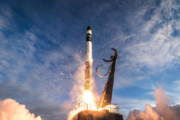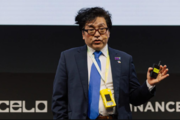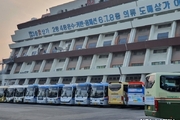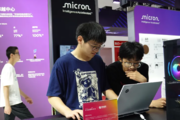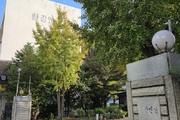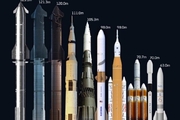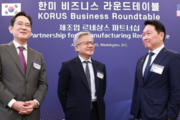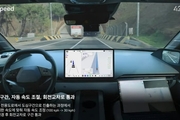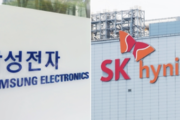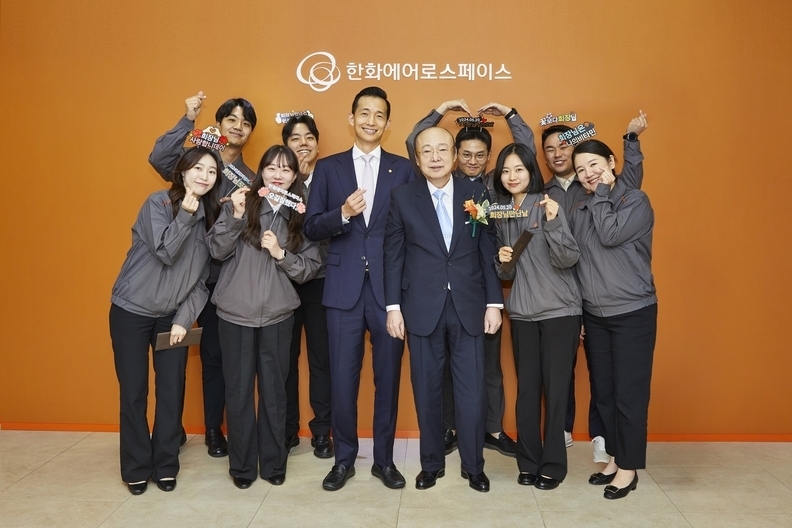
[News Space=Reporter seungwon lee] Hanwha Aerospace's 3.6 trillion won paid-in capital increase is causing controversy as it faces daily opposition.
The Economic Reform Solidarity said on the 2nd, "It is difficult for investors to understand that Hanwha Ocean's stock was purchased for 1.3 trillion won right before a large-scale investment plan and that five years of investment funds were raised at once from shareholders." They argued that if these questions are not resolved, this paid-in capital increase should be withdrawn.
On March 31, Lee Jae-myung, the leader of the Democratic Party of Korea, also pointed out the controversy over the succession of management rights at Hanwha Group on Facebook, saying, “Recently, when a listed company announced a 3.6 trillion won paid-in capital increase, the company’s stock price fell 13% in one day, causing many retail investors to suffer huge losses.” He continued, “On the same day, the stock price of the parent company also fell over 12%. But today, news came that the head of a certain conglomerate was giving shares in the parent company with a fallen stock price to his children.”
Hanwha Aerospace's paid-in capital increase is causing controversy in many ways. First, there is criticism that the large-scale fund raising plan, which was announced only 40 days after the purchase of Hanwha Ocean's shares, could place excessive burden on shareholders. There is a lack of specificity in the investment plan, and if the market's trust is not gained due to the issue of duplicate listing, it is inevitable that the paid-in capital increase will be withdrawn.
The Economic Reform Solidarity raised the issue, saying, “Despite the large-scale investment plan, we question whether it was appropriate for Hanwha Aerospace to purchase a 7.3% stake in Hanwha Ocean for a total of 1.3 trillion won on February 10, just 40 days ago.”
In other words, although it was carried out under the pretext of establishing an integrated defense and shipbuilding system, the core of the controversy is whether the additional share purchase was absolutely necessary in a situation where Hanwha Ocean was already included as a consolidated subsidiary. The shareholding ratio only increased slightly from the previous 23.14% to 30.44%.
Furthermore, the fact that this stock purchase was made from an affiliate company owned entirely by the controlling shareholder family, including Hanwha Energy, has sparked controversy.
The Economic Reform Solidarity Group claimed, "There are even suspicions that this decision was made to realize the capital gains of the controlling shareholder's family," and "There is also analysis that if the stock purchase had not occurred, the size of the paid-in capital increase could have been reduced."
In addition, Hanwha Aerospace announced that it plans to use the funds raised through paid-in capital increase for facility investment and overseas defense and shipbuilding company equity investment from 2025 to 2030. However, the fact that it did not specify the scale and timing of the investment is also not gaining the trust of the market.
The Economic Reform Solidarity said, “It is expected that operating profits of 1 to 2 trillion won per year will be generated, and various funding methods such as issuing perpetual bonds or redeemable preferred stocks are also possible,” but emphasized, “However, the plan to procure investment funds for the next five years all at once is difficult for investors to understand.”
Experts also advise that the paid-in capital increase should be reduced in size and a more specific fundraising plan should be included in the securities report. If these questions are not resolved, the prevailing opinion is that it would be advisable to withdraw the paid-in capital increase.
This incident is also being criticized for once again highlighting the problem of Hanwha Group's double listing structure.
Currently, Hanwha Aerospace has Hanwha Ocean (30.4% stake) and Hanwha Systems (46.7% stake) as subsidiaries. This type of double listing is considered a major cause of conflicts of interest among shareholders and undervaluation of the company while maintaining a loose governance structure within the group.
In particular, it is in conflict with the strategy of Hanwha Group, which aims to integrate the defense, shipbuilding, and aerospace businesses. Experts suggest that we should consider converting Hanwha Ocean and Hanwha Systems into 100% subsidiaries for business integration. It is necessary to reorganize the governance structure fairly through comprehensive stock exchange methods, such as the case of Meritz Financial Group.
The Solidarity for Economic Reform raised its voice, saying, “Hanwha Aerospace must actively work to dispel investor and market skepticism regarding this paid-in capital increase,” and “If it fails to present a specific investment plan and alternative financing method, it will not be free from criticism that it is damaging shareholder value. Ultimately, if it fails to gain the trust of the market, the rational choice would be to withdraw this paid-in capital increase.”




